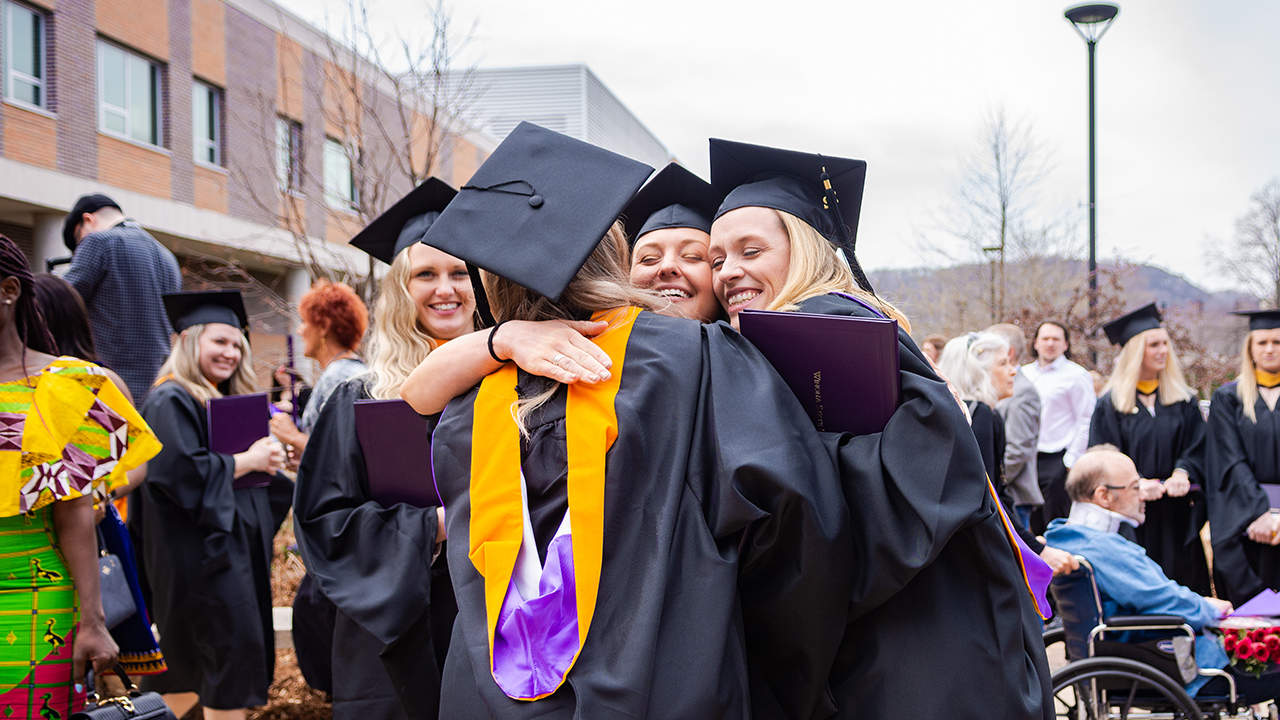
The demand for social workers continues to rise, according to the Bureau of Labor Statistics, and so too does the enrollment in Winona State University’s Master of Social Work (MSW) program.
This Spring, more than 60 students in the MSW program graduated making it the largest cohort of graduating students since the program’s inception in 2019.
While the program is still relatively new–it received full accreditation from the Council on Social Work Education in 2022– it continues to evolve to meet the needs of students, organizations, and communities. The Bureau of Labor Statistics has projected a 9% growth rate in social work by 2031, which is above average compared to other fields.
“I came here because of [the MSW program’s] focus on trauma-informed care,” said Alex Espadas, the Program Director and Assistant Professor in WSU’s Master of Social Work program.
The MSW program looks at mental health through a wider lens, said Espadas. It focuses on preparing trauma-informed clinical social workers through a mixture of unique immersive experiences.
“We want to work with [many different partners] to look for intersections between their discipline and [ours] and find opportunities for co-training and trauma-informed training,” Espadas explained.
One example is with the Human Library in Rochester, Minn., where students connected with individuals from different backgrounds to listen to their experiences as if they were an open book.
“The person that volunteers to be a human book directly shares with you their experiences and thoughts,” said Espadas. “The goal of having the MSW program meet with these human books is to enhance their experience and education in working with diverse groups.”
Beyond the immediate benefit to students in making connections in the greater community and helping them to secure enhanced opportunities for practicums, internships, and post-graduation employments, Espadas believes the MSW program’s external partnerships offer an important service to the community.
